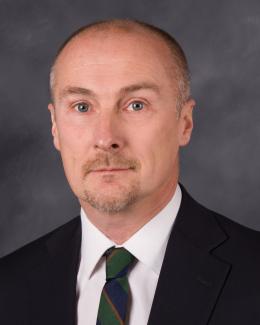
Bio
As ORNL’s Associate Laboratory Director for Biological and Environmental Systems Science, Paul Langan stewards a research portfolio targeting the convergence of biology, ecology, engineering, data discovery, physical sciences, and computing to advance U.S. competitiveness in the global bioeconomy and Earth system sustainability.
Paul returned to ORNL in April of 2023 after nearly two years as director general of the Institute Laue Langevin (ILL) in Grenoble, France – the premier center for neutron science and technology in Europe. As director general, he helped forge connections among research, higher education, and industry that accelerate technical breakthroughs. He also partnered with the molecular biology, synchrotron, and structural biology facilities co-located with ILL on Grenoble’s European Photon and Neutron science campus to provide researchers with coordinated access to some of the most advanced experimental platforms for bioscience research.
Paul previously held several leadership roles at ORNL. After arriving as a senior scientist in 2011, he directed the Center for Structural Molecular Biology and served as founding director of the Biology and Soft Matter Division within the Neutron Sciences Directorate, building collaborations across the lab in both leadership roles. He became associate lab director for neutron sciences in 2015 and oversaw the directorate’s growth for six years before joining ILL.
Paul received a BSc in Physics from Edinburgh University and a PhD in Biophysics from Keele University (England). He serves as a member of the editorial board for the journal Cellulose, co-editor for Acta Crystallographica Section D, and is a fellow of the American Crystallographic Association. In 2021, he and his colleagues were recognized with the Department of Energy Secretary’s Achievement Award to the National Virtual Biotechnology Laboratory Team for harnessing the “formidable scientific facility and research capabilities” of the DOE national laboratories to meet challenges posed by the COVID-19 pandemic.
Paul’s contributions to science have ranged from leading internationally recognized research teams to directing advanced world-class research facilities, while delivering science discoveries across different levels of organization and scales of resources. Research in areas of interest including biology, chemistry, physics, and computing have led him to appreciate the power of bringing together technical and scientific staff form diverse areas of science to solve complex problems and to make new discoveries.

